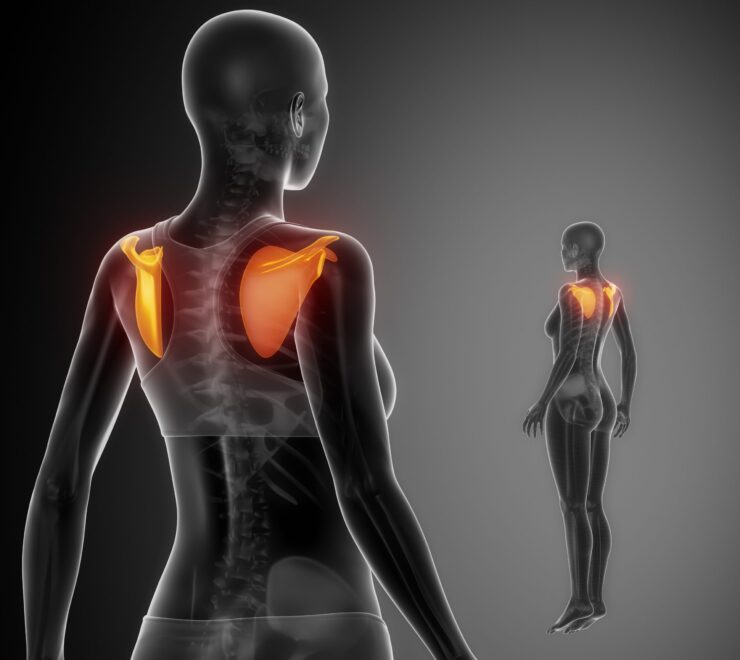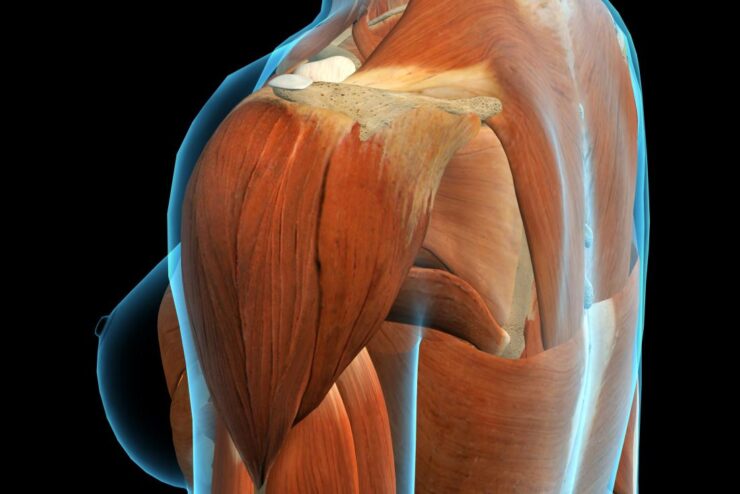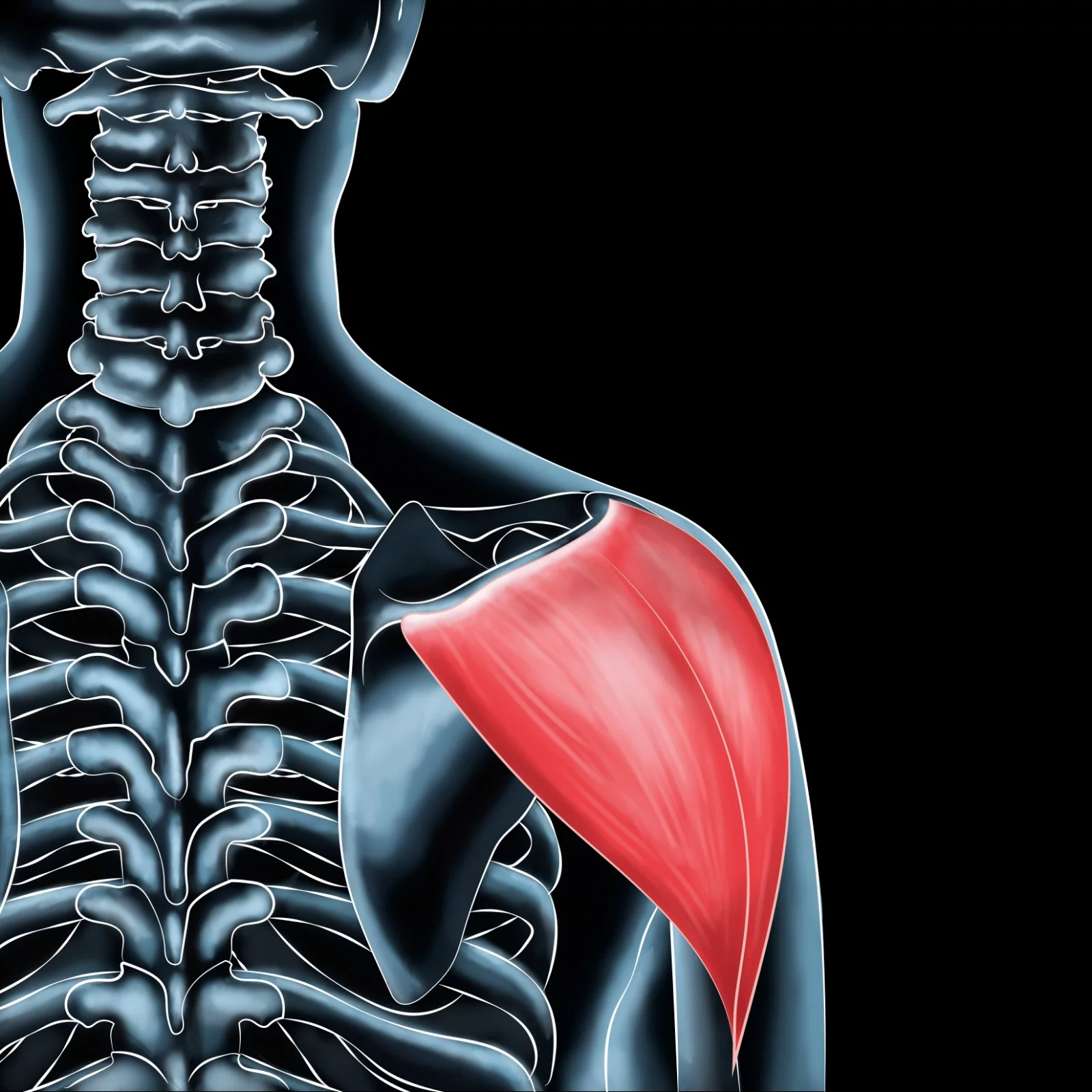In our non-stop world, sleep acts as a refuge, a time of restoration. Yet, for many, this sanctuary becomes a battleground, especially when plagued with deltoid muscle pain. Those who’ve experienced this type of pain know the sheer agony it can produce, often likening it to a sharp jolt or a persistent ache that turns the nightly respite into hours of torment. A deep understanding of the deltoid’s role, its potential issues, and solutions is imperative not only for a peaceful night but also for optimal daily functioning.
Understanding the Deltoid Muscle

At the crux of this nocturnal discomfort lies the deltoid muscle. Positioned prominently on the upper part of the arm, this muscle might appear simple but is crucial for a slew of daily activities. Comprising three sections – the anterior, lateral, and posterior – each has its specific function, working in tandem to help you reach, lift, and rotate your arm. From heaving your gym bag over your shoulder to orchestrating a symphony with a baton, the deltoid is your silent ally. During the night, its comfort or distress often hinges on the posture you adopt. Thus, it’s paramount to comprehend the ways our daily activities and nighttime habits influence this indispensable muscle.
Common Symptoms
The riddle of deltoid muscle pain manifests itself in varied ways. Some describe it as a nagging, persistent throb that’s ever-present, while others experience sharp, shooting pains that intermittently disrupt their slumber. Some might feel the discomfort localized, pinpointing a specific part of their deltoid, whereas for others, it cascades down the arm, making it challenging to discern its exact origin. These symptoms, diverse as they may be, serve as red flags, signaling that something is amiss and needs attention.
Causes of Deltoid Muscle Pain

Sleep Posture and Deltoid Pain: Your bed should be a haven, but sometimes it’s the very setup of this resting place that incites deltoid pain. The angle at which you position your shoulder, the type of pillow you use, or even the mattress’s firmness can play roles in this nightly drama. For instance, sleeping on an excessively high or hard pillow might put undue pressure on the deltoid. On the flip side, a mattress that doesn’t offer adequate support might cause the shoulder to sink, straining the muscle. As we uncover the complexities of deltoid muscle pain, it becomes evident that our sleeping environment and habits can either act as a balm or a barb for our deltoids.
Overuse and Muscle Strain: Our bodies are marvels of endurance, but even they have limits. Continuous or repetitive activities, especially those that overextend the arm or involve heavy lifting, can overtax the deltoid muscle. A long day of painting, an intense tennis match, or even incessant typing, if not paired with proper breaks and posture, can be precursors to nighttime deltoid discomfort.
Injury and Trauma: Accidents are an unfortunate part of life. A slip in the bathroom, a misstep on a hiking trail, or a collision during a sports game can result in direct trauma to the deltoid. Such incidents may cause immediate discomfort or lead to pain that manifests predominantly during the night when the muscle attempts to relax and heal.
Medical Conditions: Beyond the evident culprits, certain medical conditions can be the stealthy agents behind deltoid muscle pain. Tendinitis, an inflammation of the tendons, can impact the deltoid’s functionality. Rotator cuff injuries, which involve the muscles and tendons that stabilize the shoulder, often have a domino effect, straining the deltoid. Another condition, frozen shoulder, restricts movement and can, in turn, lead to deltoid distress. To know how to address all of these common issues you should read more.
Diagnosis and Medical Evaluation

When sleep becomes elusive due to deltoid pain, it’s a clarion call for medical intervention. Initiating a comprehensive medical evaluation often starts with a detailed history of the pain onset, its duration, and any potential triggers. This is followed by a physical examination, where the physician will palpate the area to identify specific tender points. They will also assess the range of motion to gauge any movement limitations. If needed, imaging tests like an X-ray or MRI could be recommended to provide an in-depth view of the muscle and surrounding structures. An accurate diagnosis is the cornerstone to effective treatment, ensuring that you’re not merely addressing the surface symptoms but truly targeting the root cause.
Treatment Options
Upon determining the precise cause of your discomfort, a tailored treatment regimen can be charted out to best address your needs. For minor strains or injuries resulting from overuse, conservative measures often suffice. This could include adequate rest to facilitate muscle recovery, timely application of ice to reduce swelling and inflammation, and over-the-counter pain relievers to manage the pain. For many, physical therapy emerges as a formidable ally, employing targeted exercises to help restore strength, flexibility, and overall functionality to the affected deltoid. However, in severe or persistent cases where pain remains unabated, more intensive interventions, such as corticosteroid injections to reduce inflammation or even surgical procedures, might be considered.
Preventive Strategies

As the adage goes, prevention is often better than cure. Cultivating habits that prioritize muscle health, such as maintaining a proper sleep posture, is crucial. It’s also wise to incorporate regular breaks during repetitive tasks to reduce the risk of overuse injuries. Additionally, a regimen of strength training exercises designed to bolster the deltoid and adjacent muscles can work wonders in fortifying this region. Being attuned to your body’s subtle signals, acknowledging even minor discomforts, and addressing them promptly can play a pivotal role in preventing them from snowballing into more significant, debilitating issues.
Conclusion
Deltoid muscle pain during sleep, while initially daunting, isn’t insurmountable. Armed with the right knowledge, coupled with proactive measures, and the guidance of medical professionals, one can navigate this challenge adeptly. It’s crucial to remember that enduring pain isn’t a testament to one’s resilience or strength. Instead, genuinely understanding your body, seeking timely help, and taking decisive steps toward healing showcase true courage. Sweet, restorative, pain-free dreams await those who take informed, proactive action.

